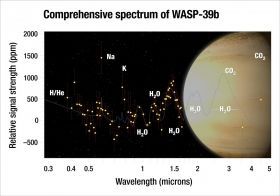
Imagine if carbon dioxide (CO2) could easily be converted into usable energy. Every time you breathe or drive a motor vehicle, you would produce a key ingredient for generating fuels. Like photosynthesis in plants, we could turn CO2 into molecules that are essential for day-to-day life. Now, scientists are one step closer.
Researchers at the U.S. Department of Energy’s (DOE) Brookhaven National Laboratory are part of a scientific collaboration that has identified a new electrocatalyst that efficiently converts CO2 to carbon monoxide (CO), a highly energetic molecule. Their findings were published on Feb. 1 in Energy & Environmental Science.
>> Read the Full Article

Backed by the iconic Table Mountain, Cape Town, South Africa’s second-largest metropolis, seduces increasing numbers of international travelers. Its charismatic neighborhoods, bright beaches, and breathtaking natural landscapes garner shelves-full of tourism awards and terabytes of glowing Instagram posts.
Recently, Cape Town also has become infamous as the home of “Day Zero,” the day when most of the city’s taps are predicted to run dry. With its major, rain-fed supply dams dangerously low after three years of drought, most of the city’s 4 million-plus residents — some rich, many desperately poor — have been facing the prospect of lining up at emergency water distribution points to collect a daily ration of just 6.6 gallons per person sometime before June or July. That’s when winter rains normally begin filling the reservoirs of this Southern Hemisphere city.
>> Read the Full Article

Melting icecaps, mass flooding, megadroughts and erratic weather are no laughing matter. However, a new study shows that humor can be an effective means to inspire young people to pursue climate change activism. At the same time, fear proves to be an equally effective motivator and has the added advantage of increasing people’s awareness of climate change’s risks.
>> Read the Full Article

Much like detectives study fingerprints to identify the culprit, scientists used NASA’s Hubble and Spitzer space telescopes to find the “fingerprints” of water in the atmosphere of a hot, bloated, Saturn-mass exoplanet some 700 light-years away. And, they found a lot of water. In fact, the planet, known as WASP-39b, has three times as much water as Saturn does.
>> Read the Full Article

Large day-to-day swings in temperature were associated with significantly more heart attacks in a study being presented at the American College of Cardiology’s 67th Annual Scientific Session. Given that some climate models link extreme weather events with global warming, the new findings suggest climate change could, in turn, lead to an uptick in the occurrence of heart attacks, researchers said.
>> Read the Full Article
More and more people are surviving cancer. Yet support for people who survive cancer and the research that underpins their care is insufficient, particularly when it comes to non-medical issues. A new special issue of the Journal of Cancer Policy, which will be published in March following the 3rd EORTC Cancer Survivorship Summit to be held in Brussels on March 1st and 2nd, shines a light on the issues and calls for more long-term research, better cross-analysis of different cancer types and better support for those who survive the disease.
>> Read the Full Article

 ENN
Environmental News Network -- Know Your Environment
ENN
Environmental News Network -- Know Your Environment